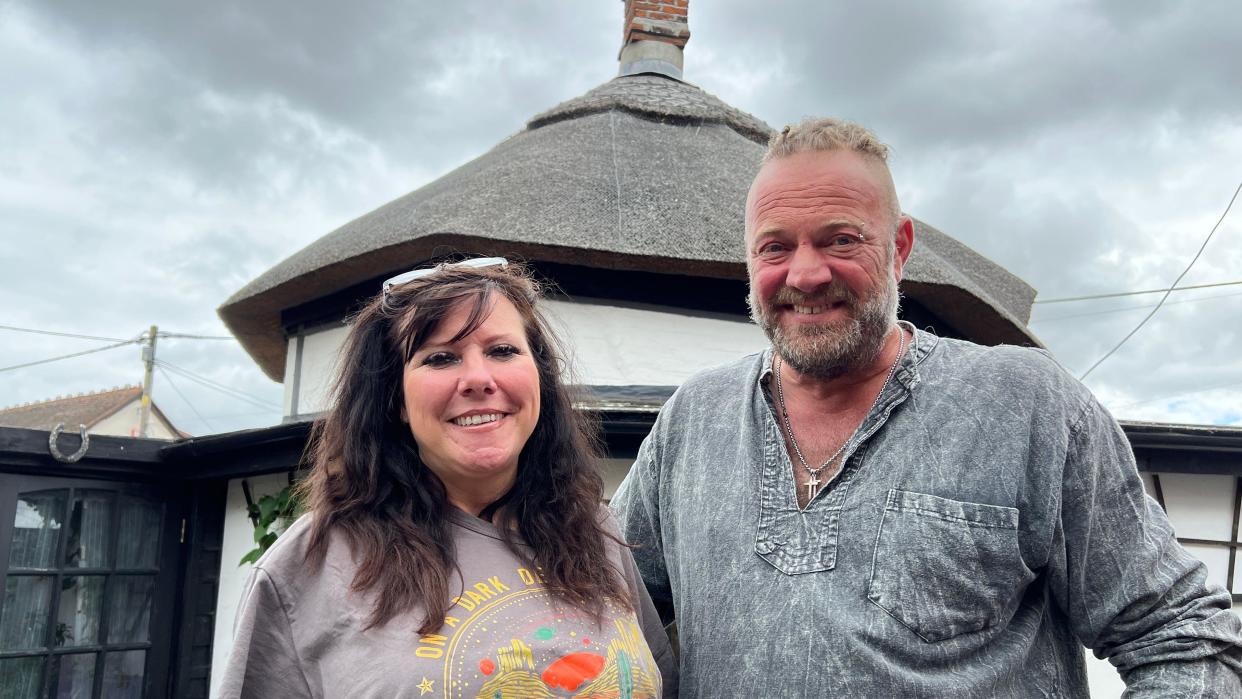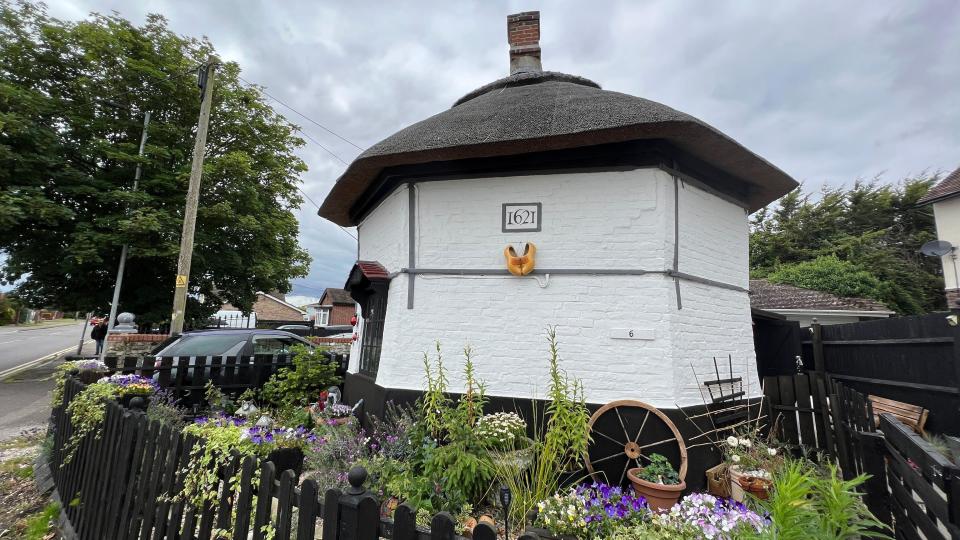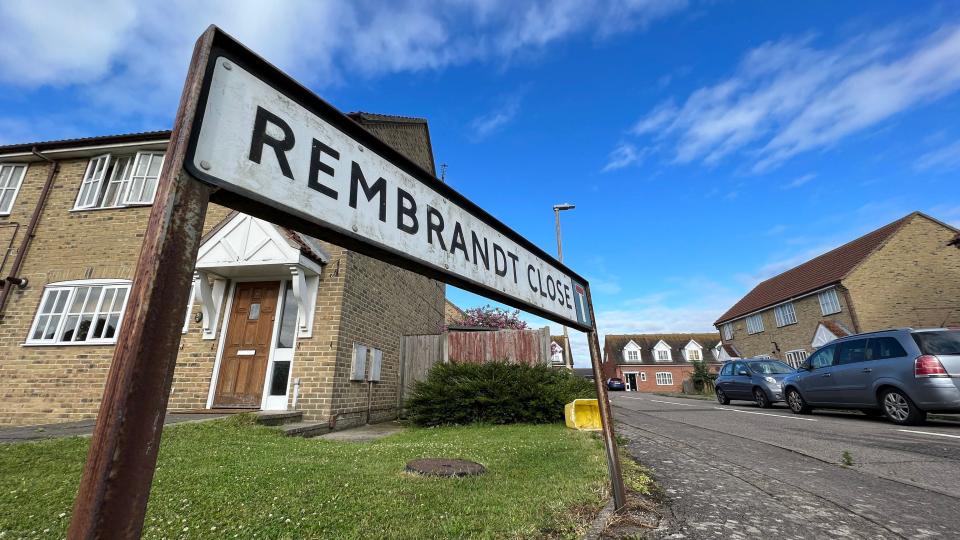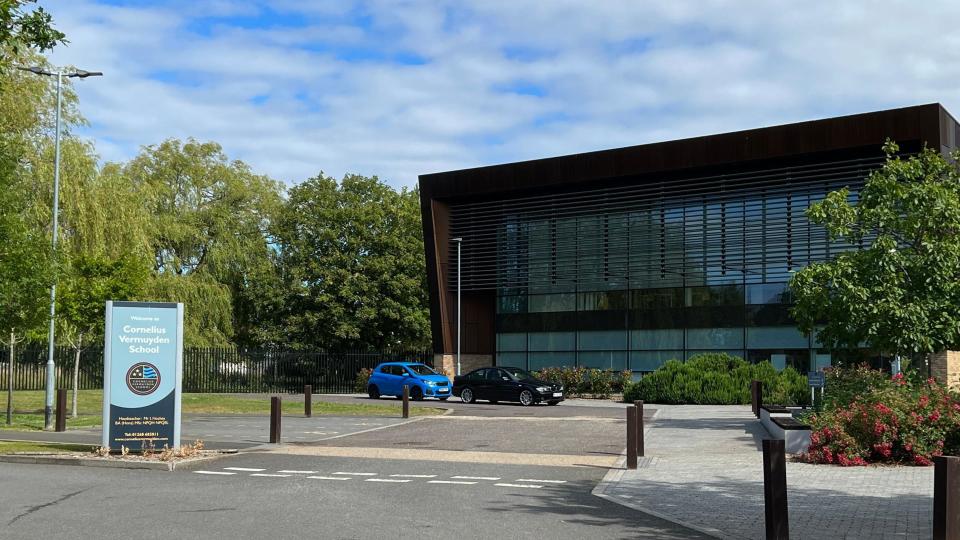The Essex island rooted in Dutch history

England and the Netherlands may be separated by 120 miles (193km) of North Sea, but the countries share strong bonds.
Dutch settlers arrived on Canvey Island in the 17th Century and created its first sea defences while using the land for farming.
Their legacy remains, with Dutch references scattered across the island.
It means that, for some, loyalties are divided ahead of England's clash against the Netherlands in the Euro 2024 semi-final.
Dutch cottages
Jules and Peter Garnham purchased their own part of Dutch history when they became the owners of their small cottage.
They fell in love with the property, which became home in September 2023 and is one of two cottages dating back to the original 200 Dutch settlers.
"We feel really blessed to be here," Mrs Garnham told the BBC.
The couple discovered documents and photographs under the stairs when they moved in, packed with information about the previous occupants.

"I know I’m living in a really important part of history and we’re just so happy," Mrs Garnham added.
Peter, who is 6ft 3ins (1.9m) tall, said he was not too bothered about the low ceilings and compact living quarters, telling the BBC he was grateful to be living here.
"We pinch ourselves most days, even now," he said.
The land on which their house was built had been drained by the engineer Cornelius Vermuyden, who also constructed the first sea wall around the island.
Octagonal in shape and with thatched roofs, the island's other Dutch cottage became one of the country’s smallest museums.
Mrs Garnham said despite her loyalties to her own cottage, she would be supporting England in their crunch match - although she did not mind who won.

'Special country'
Several roads on the island have been named after Dutch places, from Delft Road and Waalwyk Drive to Tilburg Road and Winterswyk Avenue, as well as famous Dutch artists such as Rembrandt Close.
Cornelius Vermuyden School proudly bears the name of the island’s architect.
The town also shares a tragic history with the Netherlands, with both affected by the 1953 floods that killed 59 people on Canvey and more than 1,800 people in the Netherlands.
Ray Howard, a former local councillor who has lived on Canvey Island all his life, said it was indebted to the Dutch.
"Would Canvey be what it is today without the Dutch? I don’t think so," he told the BBC.
"They are a special country, the people are so kind."

Follow Essex news on Facebook, Instagram and X. Got a story? Email eastofenglandnews@bbc.co.uk or WhatsApp us on 0800 169 1830


